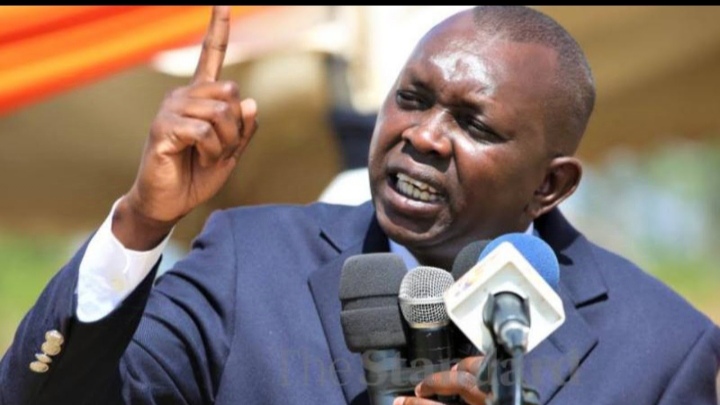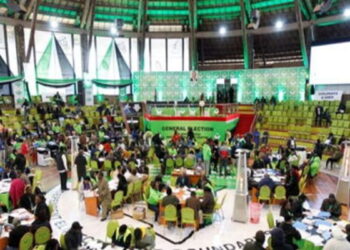Kapseret MP Oscar Sudi is at the center of a controversial land dispute involving Moi University, as allegations surface regarding his involvement in the grabbing of 1,515 acres of university land.
This land, claimed by local squatters, has become a focal point of investigation by the National Assembly Lands Committee, which has summoned Sudi to adduce evidence on the matter.The land in question, located adjacent to Moi University’s main campus in Kesses, Uasin Gishu County, has been claimed by squatters who assert ancestral rights over it. They allege that they have occupied this land for over four decades and are now facing eviction due to a purported conspiracy between local politicians and university officials.
The squatters have petitioned the parliamentary committee, seeking intervention to reclaim their land.During a recent committee session held at Boma Inn in Eldoret, members interrogated various stakeholders, including Moi University Vice-Chancellor Prof. Isaac Kosgey and representatives from the squatters’ community.
The committee chairperson, Joash Nyamoko, emphasized the need for accountability and transparency regarding the land’s ownership and leasing agreements.In response to the summons, MP Oscar Sudi declared that he would not appear before the committee, asserting that there was no dispute over the land’s ownership.
He maintained that it is widely known that the land belongs to Moi University and criticized the committee for what he perceived as a waste of taxpayer resources. Sudi’s statements suggest he views himself as unjustly implicated in a matter he claims is straightforward.
“I am not a land grabber; I have never grabbed any land. I bought my land,” Sudi stated in a video posted on social media.

He urged the committee to seek information from local administrators and residents rather than summoning him. Prof. Kosgey defended the university’s actions during his testimony before the committee. He revealed that the institution had leased half of its land to a private investor named Cropsoko, under an agreement that was supposed to generate significant revenue for the financially struggling university.
According to Kosgey, this leasing arrangement was initiated following a directive from the Office of the President aimed at utilizing underused university resources.Despite this directive, Kosgey admitted that Moi University has yet to receive any payments from Cropsoko since the lease began.
The agreement stipulated an annual payment of KSh 24 million for five years, totaling over KSh 120 million. However, no funds have been received thus far.The leasing process has raised eyebrows among lawmakers who question whether proper procedures were followed in acquiring title deeds for the disputed land.
Kaloleni MP Paul Katana challenged Kosgey on transparency issues related to the lease agreement and demanded clarity regarding the ownership of Cropsoko. He indicated that there are suspicions about senior government officials being involved in dubious activities concerning this land.The committee’s investigation aims to determine whether there was any collusion between university officials and local politicians to facilitate what some perceive as illegal land grabbing.
The squatters have expressed their frustration over being evicted without due process and are demanding restitution for their ancestral lands.This dispute has broader implications for local communities who rely on these lands for their livelihoods. The allegations against Sudi and university officials highlight ongoing tensions between political interests and community rights in Kenya.
As investigations continue, many are watching closely to see how this situation unfolds and whether justice will be served for those claiming ancestral rights.The situation surrounding Moi University’s land dispute underscores significant challenges in governance and accountability within Kenyan institutions.
With political figures like Oscar Sudi refusing to engage with parliamentary inquiries and university officials facing scrutiny over their decisions, it remains to be seen how this conflict will resolve. The outcome could set important precedents regarding land rights and political accountability in Kenya’s complex socio-political landscape.
As both sides prepare for further hearings, stakeholders hope for a resolution that respects community rights while addressing institutional needs. The National Assembly Lands Committee is expected to continue its investigation into these serious allegations, aiming to bring clarity and justice to all parties involved.



















